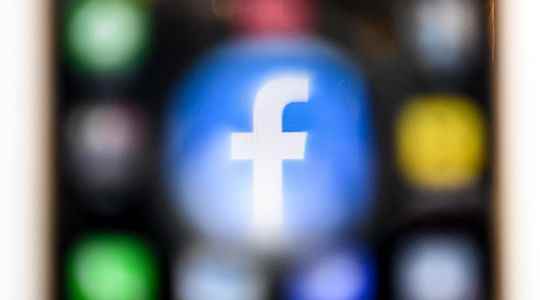Is Russia, already politically and economically isolated, heading towards digital autarky? She took a further step in this direction on Friday, after having struck a new turn against the media and social networks. The texts, adopted by Parliament and ratified by President Vladimir Putin, provide for heavy criminal penalties in the event of the dissemination of “false information about the army”, in the midst of an invasion of its Ukrainian neighbor. An amendment introduces penalties of up to 15 years in prison for spreading information aimed at “discrediting” the Russian armed forces. The law also suppresses any call to sanction Moscow.
In its desire to control the story of the war, which is not one in Russia, rather a “special military operation”, Moscow has also attacked social networks a little more. The regulator ordered the blocking of Facebook, accused of “discriminating” against the Russian media: for example the television of the Ministry of Defense Zvezda, the news agency RIA Novosti, or the state media RT and Sputnik in Europe, whose accounts have been suspended.
On Friday, the social network of Meta (Facebook’s parent company) no longer worked without a VPN – WhatsApp and Instagram, also owned by the group, seemed spared for the time being. Access to Twitter has also been restricted. “It’s censorship of last resort. The Russians are so desperate at this point that they are unplugging a platform instead of blocking certain pages as they usually do”, reacted to AFP Steven Feldstein, a specialist from the think tank Carnegie Endowment for International Peace.
“A devastating blow for access to independent information”
“Millions of Russians will soon be deprived of reliable information,” reacted Meta after the announcement by Roskomnadzor, the telecoms policeman. The American social network is however not the most used in the country: it has only 7.5 million subscribers. On site, the star remains Vkontakte (VK), controlled by Gazprom-Media, a subsidiary of the eponymous energy giant in which the government is the majority shareholder. But despite everything, Facebook has until now played an essential, mobilizing role in the Russian independent media ecosystem. “The expression of critical personalities takes place mainly on social networks in Russia. Content on Facebook is shared via messengers. So it is a devastating blow for access to independent information and for resistance to war “, explains to AFP Natalia Krapiva, lawyer specialist in technologies at the NGO Access Now.
If Facebook is widely criticized in Europe or the United States for misinformation, the platform remained an open window for some Russians wanting to escape the state narrative. “There is a risk that people will no longer be able to know the truth at all,” laments Natalia Krapiva. There remains the possibility for citizens to access blocked sites through a VPN (virtual private network), which transmits traffic through servers in another country. According to data compiled as of March 1 by Atlas VPNVPN installations jumped by more than 1900% in the country in a few days.
The “Runet”, this dream of Vladimir Putin
These digital blockages and limitations from Moscow are part of a response to Western sanctions, which aim to cut Russia off from many services. Several technology giants and Internet service providers have already announced that they have terminated their contracts with Russian customers. These decisions could make Vladimir Putin’s dream come true, that of a “Runet”: a controlled Russian Internet, closed to foreign connections. This would allow, according to the speeches already served by the authorities, to protect themselves against computer attacks. Above all, it would extinguish many opposing voices and facilitate total control of discourse.
But experts, like Natalia Krapiva, worry about such repercussions. “Disconnecting Russia from the internet is counter-productive for civil society which is trying to fight back. Putin is already doing it himself, we don’t need to help him!”, she remarks .
At washington post, Mikhail Klimarev, executive director of the Internet Protection Society, a civil society group opposed to internet censorship, confirms: “As long as the internet exists, people can find the truth”. If there is no Internet, “the whole population in Russia will only hear the propaganda”.
